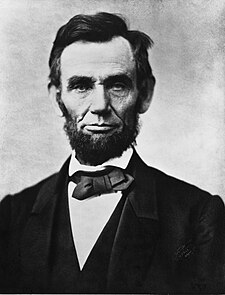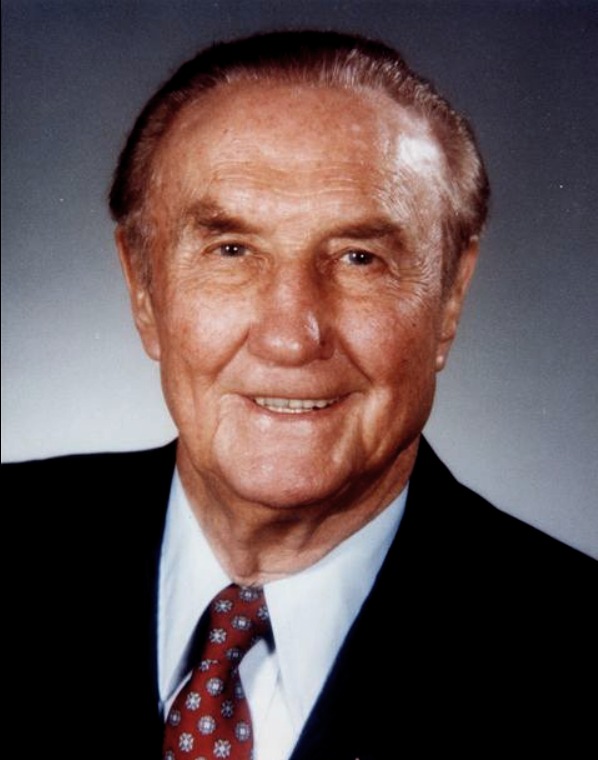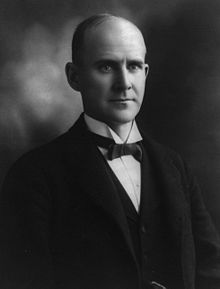
You hear it often, "the Republican party is the party of Lincoln." Yet, for his time Lincoln clearly had liberal views. Then there were the Reagan Democrats of the '80s and '90s who were largely conservative. There was also the group known as Dixiecrats, another set of conservatives of the late '50s and '60s. Yet the Lincoln Republicans led the way in freeing the slaves, which most would concede was a dramatic Civil Rights move. By the Great Depression, Franklin Delano Roosevelt, a Democrat, would lay the ground work for the New Deal, which began welfare and social security. There were segregationists like George Wallace and Stom Thurmond, the former a Democrat and the latter a Republican. So when did the two parties change places?

Politics is a complex and nearly unfathomable occupation. The fact is that there have been several such changes in beliefs by both parties. To start we need to go back a ways...the birth of nation, before there was the DNC and RNC. In the beginning...(of the USA) there were two parties: The Federalists and Democratic - Republicans. The Federalists supported the Northeast and largely business. The Democratic-Republicans didn't. They were more artisan oriented. The Federalists eventually folded and were replaced by the new party of business, the Whigs. One of the people I came across while trying to figure this out stated that the Whigs primary goal was to raid the public treasury. Mean while, the Democratic-Republican party became just the Democratic party in the early 1800's. Of all the presidents, by the way, only George Washington had no reported party affiliation. John Adams was the only Federalist. Four presidents were Democratic Republicans. Four were Whigs. Eighteen were Republicans. Fifteen were Democrats. Andrew Johnson, Lincoln's vice president is usually identified as a Democrat, but he never officially joined the party, so technically he was an independent. John Tyler, a Whig as vice president, went against the party and was expelled from the Whig Party making him independent as well.
So when the Republican party rose to prominence, the Whig Party collapsed and actually became a part of the Republican party. When the Civil War ended, the Republicans ruled, for the most part. Remember, Andrew Johnson classified as a Democrat, was president. He was also the first president to undergo impeachment proceedings. Congress was controlled by Republicans. So it was natural that Democrats became largely Southern and conservative. After Johnson, the Republicans probably because of the reconstruction would control the White House until 1885. The Republicans became the party of big business and, are you ready for this, the party of big government. The Democrats in the South went the opposite way. They didn't want big government because with Reconstruction, big government tended to be in their business.

(from
http://www.therightplanet.com/2012/03/fdr-exposed-part-3-the-new-deal-or-just-the-old-socialsm/)
This lasted, more or less, until the Great Depression. The New Deal was it's name. Franklin Roosevelt introduced the "Relief, Recovery, and Reform" in response to the depression in his first term. This reset the control of the White House which would be seven of nine presidents until 1969. The Republican Party split with its conservative branch announcing the liberal ideas of The New Deal was an enemy of business and growth. Sound at all familiar? Liberals accepted some of it promising to make the rest more efficient, again, a bit familiar sounding.
The first New Deal concentrated on saving various industries, railroads, and farming. They all needed economic protection. The Federal Emergency Relief program would give out 500 million to states and cities. Hmmm another familiar sounding incident. This was followed by the second New Deal in Roosevelt's second term. This was much more liberal and set up the New Deal Coalition which lasted until the election of Nixon. The second New Deal was a job program called the Work Progress Administration. The WPA would make the federal government the largest single employer in the United States. In addition to the WPA there was the establishment of the Wagner Act, which supported labor unions, the Social Security Act which congress still seems to be at odds about, The US Housing Authority, The Farm Security Administration, and the The Fair Labor Standards Act, which established maximum labor hours and minimum wage.
In reaction to the second New Deal, a battle between labor unions of the AFL and CIO, and an economic downturn, conservative Republicans and Democrats, the Conservative Coalition, took control of Congress, with the Republicans making substantial gains. It was the rise of the Dixiecrats or Southern Conservative Democrats. It may also mark the trend of the South becoming more Republican. Programs were declared unconstitutional and some were rewritten and upheld.

With the rise of conservatism in Congress a Gallup Poll asked if people believed that Roosevelt's programs were undermining the recovery and confidence by business. The response was nearly two to one "yes." Other polls found the same was true, although by not as large of margin. Roosevelt responded by moving left and attacking the monopoly of power which included the sixty most wealthy families in America. Although he had actually balanced the budget, with the down turn in economy, underemployment was at 19 percent having risen from over 14 percent, Roosevelt embarked on a five billion dollar spending program.
The Great Depression ended with entry into World War II. The war economy demanded more manufacturing and employees as well as the need for men in the military. Women entered the workforce. Despite the conservative Congress, New Dealers would pass a number of protective acts during the war. Conservatives, in order to prevent wanted benefits for everyone wanted by the liberals, would pass benefits based on service which became known as the G.I. Bill. It became a landmark piece of legislation, establishing the middle class and economy largely driven by them. The last of the New Deal legacy was seen with Lyndon Johnson's Great Society which saw the rise of things like the voter protection act and of course the land marks of Civil Rights Legislation. The battle between conservative Republicans and the Dixiecrats and FDR would move the Democratic Party firmly to the left and Republicans to the Right.
So now you know how the Party of Lincoln became conservative and the once conservative Democrats became liberal. Who knows if both survive another fifty years what they will become.
Is it just me or does all this sound a little bit familiar? It might also contain a bit of a lesson for both parties as to which one dominated the White House for the next three and a half decades. Barring the stealing of the election by certain groups, we've seen this before.
"Those who cannot learn from history are doomed to repeat it." ~George Santanya.









.png/200px-George_C_Wallace_(Alabama_Governor).png)






























